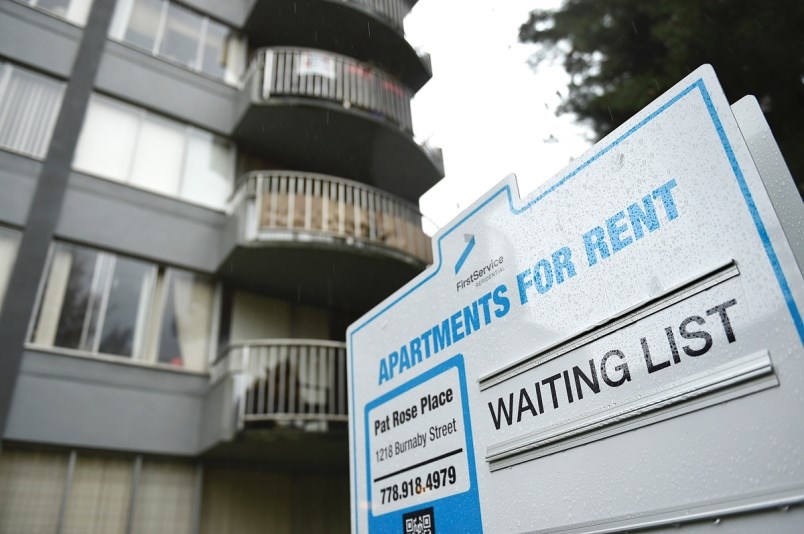“Let’s have a rental vacancy control system, where annual rent increase caps are tied to the unit instead of a tenant!” comes the call from housing advocates and commenters. “That way, greedy landlords can’t jack up the price of a rental unit between leases, and there will be no motivation for renovictions. A double win for renters!”
What could possibly go wrong?
The idea of vacancy control in B.C. has been widely mooted and the province's Rental Housing Task Force is about to issue its next set of recommended changes to the Residential Tenancy Act. Clearly rattled by even the possibility of vacancy control, earlier this week the Urban Development Institute . The results suggested more than 12,000 of the 19,000 rental units currently in the pipe would be put at risk of delay or cancellation were such a measure to be introduced.
The social media comments on this story were as you’d expect. To paraphrase: “Of course greedy developers would say that, to try to make more money off their purpose-built rentals. I’m willing to take the risk that it’s a bluff. They’ll still build the projects even under vacancy control, they have to, it’s what they do.”
I get it. But here’s the problem. They don’t have to. They can simply switch to building market condo projects instead. Indeed, the past few decades’ lack of financial motivation for developers to create purpose-built rentals is precisely why, say, Surrey is only now getting its first new rental building in 30 years. It’s what led us to this acute rental shortage in the first place. Last I heard, we were supposed to be encouraging the supply of new rental projects, with the launch of rental-only zoning and a slew of government promises, not discouraging it.
The good, bad and ugly
So what might happen to renters under a vacancy control system?
Some good things, for sure:
1) The average cost of rent doesn’t increase more than inflation (or whatever the control level is set at). Market rental prices don’t go down, but at least they don’t skyrocket as they have in recent years.
2) If I’m a renter and need to move, currently I’m stuck with my rent-controlled unit – but under vacancy control, I am free to move, as there’s no risk that the place I’m moving to has its rent jacked up since the last tenant. It’s finally a level playing field.
3) If I’m a tenant in an older building, my landlord has no incentive to renovict me, as they can’t make their money back by hiking the rent for the next tenant.
Sounds awesome, right?
Sure, until you balance that with all the bad things that could happen:
1) Developers cancel or put on hold most of their new rental units because the projects are now financially unviable or too risky.
2) With very little new supply of rental homes, the already tight vacancy rate reduces to almost nothing. This means that new renters can’t find a home to rent, advertised units are massively oversubscribed and we see the return of round-the-block line-ups on viewing days.
3) Existing landlords have their pick of tenants and only choose the most qualified, highly paid applicants with the best references.
4) Landlords with aging units and buildings have no financial means or motive to upgrade them between tenancies, and huge swathes of rental homes fall into disrepair. Landlords are no longer worried about their sub-par units sitting empty, and desperate renters have to move into increasingly poor homes.
5) There’s a massive rush of renovictions prior to the implementation date, as landlords scramble to get all their units yielding market rents before the control kicks in.
No doubt neither of the above lists is exhaustive, and I welcome comments from readers on what they think might happen – good or bad – under vacancy control.
As an aside: For anyone asking whether I have any better ideas, I refer them to Seattle, which has by absolutely flooding the market with new supply (and no vacancy control in sight). The result of this has been a huge expansion in rental vacancies, an actual drop in rents in some areas and developers offering more and more incentives to get people into their buildings. Jus' sayin'.



